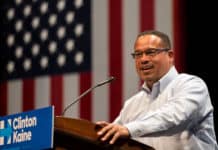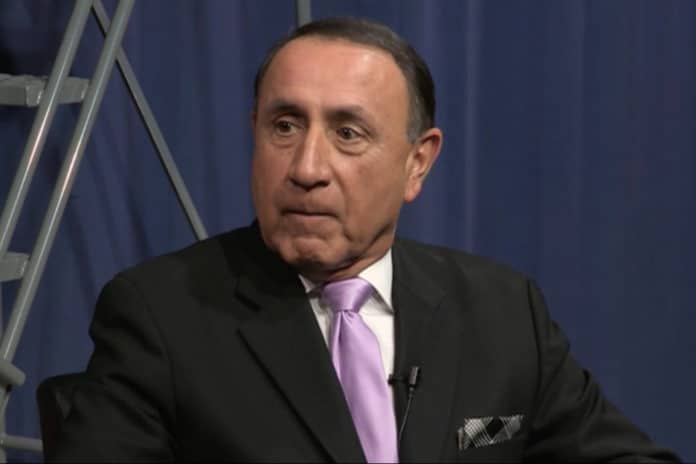I learned on Twitter that the Merriam-Webster online dictionary updated the definition of a female. I shouldn’t have been surprised. Invisible voices are busy changing all sorts of things.
A case in point is the term Latinx, the gender-neutral term progressives tried to hoist upon the Hispanic community. Like my dictionary in my garbage can, that effort landed with a loud thud.
It turns out that the Hispanic community overwhelmingly takes pride in referring to women as Latinas and men as Latinos.
I learned this from Richard Aguilar during a recent conversation in which he shared some thoughts about why Hispanics are trending red.
Aguilar has led an interesting and influential life.
A baby boomer, born and raised in Minnesota, he’s one of 12 children of Mexican immigrants.
He’s been a successful business and political leader. The only Latino to chair the St. Paul Chamber of Commerce, he’s served locally and nationally in civic and community affairs.
As chair of the Hispanic Republican Assembly of Minnesota, an affiliate of the Minnesota Republican party, he’s well-versed in what matters to the millions of people who are proud to be Hispanic American.
One of the biggest stories in politics is the Hispanic community’s rejection of the progressive movement’s policies and candidates, he says.
Recent polling revealed 70 percent of Hispanic American voters disapprove of President Biden’s performance.
That’s a stunning development, Aguilar says, given that millions of Hispanics voted for Biden 1 ½ years ago.
“That polling demonstrates that Latinos are pro-American. We’re for faith, family, and freedom. We’re not into the progressive movement.”
Last month, Republican Mayra Flores made history when she was elected to Congress in a district traditionally controlled by Texas Democrats.
Aguilar says Texas is not an anomaly.
“I don’t think anybody is happy with what’s happening with our country,” he says. “I am feeling concerned about what’s happening and I can’t believe I’m the only one.”
Hispanics know what the government can do and how it can control their lives, Aguilar says. They came from countries where the government ran everything.
They fled those countries in search of something better. They work hard, play by the rules, and teach their children to do the same.
Having sought out the American dream, they’re dismayed by much of what is playing out here.
Many Hispanics in Minnesota stay in close contact with relatives in Texas. They talk. They share ideas. And so, Hispanic Americans in Texas are influencing how their Minnesota relatives are thinking about politics, he says.
What’s on their minds?
Inflation and falling wages. Gas prices and education.
“Look at the riots two years ago,” Aguilar says. “Latino businesses on Lake Street were ransacked and burned down. It was a heart breaker. They never expected this to happen.”
“They don’t forget what happened,” he says, “and they don’t forget the slow response from Gov. Walz. That’s a big issue for them.”
So is education.
Many immigrants from Latin America are poor and uneducated, he says. They came to the U.S. to work. Unfortunately, many don’t speak English, so their children are behind in school.
Prior to the pandemic, Minnesota had the worst outcome for Latinos in the nation. Virtual learning made a bad situation worse, particularly for families with no internet access.
So, education and school choice are important to them.
And then there’s crime.
Aguilar says he doesn’t feel safe driving to Minneapolis or staying in St. Paul after hours.
“My world’s shrinking and I don’t like it.”
He’s not alone. When he spoke with a group of Latina women recently, they expressed similar concerns about crime and safety. They don’t know what to do, he said.
His answer applies to all of us, but it really resonates with individuals who were motivated to come to this country because citizens have the right to vote.
Get involved in politics. Be sure to vote. That’s how to make a difference.
With nearly 130,000 eligible Hispanic voters in Minnesota, their voices will surely matter next November.


















